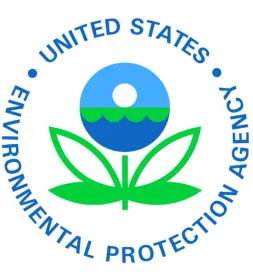Since at least May of 2014, the U.S. Environmental Protection Agency’s regional office in Dallas ("EPA") has been issuing letters to dozens of Texas companies with the heading "Potential RCRA Violations and Opportunity for Settlement." The notices generally relate to the recipient’s apparent disposal of hazardous waste in quantities greater than allowed by the recipient’s current hazardous waste generator status.
Notices have been sent to companies in a wide array of businesses including hospitals and educational institutions along with companies in the manufacturing, ceramics, oil and gas, chemicals, laboratory, terminals, metals processing, and trucking industries. These notices often culminate in tens of thousands of dollars in penalties for the letter recipients. This enforcement initiative is ongoing and all indications suggest it will continue into the future.
What is this about? These Resource Conservation and Recovery Act ("RCRA") violation notice letters commonly indicate that EPA has performed a records review and learned that the recipient has disposed of more hazardous waste than it is authorized to under the recipient’s current waste generator status.
For example, many of the letters indicate that the recipient has been registered as a "small quantity generator" (a generator of more than 100 kilograms but less than 1,000 kilograms of hazardous waste in any given calendar month) but that EPA, in its review of disposal facility records relating to actual disposal volumes, has learned that the recipient disposed of more than 1,000 kilograms in particular months.
The letters go on to give the recipient directions for contacting EPA to negotiate a prompt settlement – that would be codified into an administrative order in sixty to ninety days – or face stricter enforcement.
So I’ve received an EPA RCRA violation notice letter – what now? The first step is to engage with counsel and other resources that are (a) deeply familiar with the federal and state RCRA regulations, and (b) experienced with EPA’s enforcement process.
Skilled counsel can help you investigate the truth of EPA’s factual allegations under the protections of the attorney-client privilege (i.e., without generating new evidence that can be used against you) and help determine whether EPA has correctly identified those issues as violations. The mere disposal of more than 1,000 kilograms of hazardous waste at one time does not mean that you generated that much in a calendar month, and there are multiple other potential defenses available. In at least two circumstances last year, counsel for letter recipients determined that the disposal facility records did not in fact demonstrate a quantity exceedance and were able to resolve the letter’s allegations without further action or penalty.
While EPA ordinarily does not issue a violation notice letter without strong evidence, on-the-ground facts and the application of facts to the regulations is not always straightforward. In some circumstances, skilled counsel can help letter recipients defend against allegations and resolve these matters without enforcement; in other situations, counsel can help companies argue for reduced penalties and advise on effective compliance systems going forward to help mitigate future enforcement risk.
I haven’t received an EPA RCRA violation notice letter yet – is there anything I can do now to protect myself? From a forward-looking perspective, you need to (a) understand your registered generator classification and its limits (less than 100kg/month for conditionally exempt small quantity generators, less than 1,000kg/month for small quantity generators) and (b) impose impeccable tracking systems for your hazardous waste generation so that you will be alerted well before you exceed any threshold associated with that classification and can implement all of the cumbersome requirements associated with larger generator status before such an exceedance.
Such going-forward changes, however, will obviously only help you with preventing future exceedances of your quantity limits. From the perspective of past disposal activities, in one sense, what’s done is done – if you exceeded the quantity limit associated with your registered generation classification, there’s no going back in time to correct it. There are, however, very important options available to you.
First, you can consider conducting an environmental compliance audit and taking advantage of EPA’s and/or the State of Texas’s policies that allow you to self- audit, disclose and correct discovered violations, and thereby receive leniency or immunity from penalties. This is a complex process that merits consultation with folks who are deeply experienced with auditing, audit privilege, and audit disclosure. With EPA continuing this initiative, it may be very worthwhile to get ahead of these issues and seek to resolve them under programs that can provide relief from potential penalties.
Apart from self-auditing and disclosure, this initiative underscores the importance of each hazardous waste generator getting its arms fully around its waste generation, management, and disposal practices and volumes. Once you’ve received a notice letter, time will be very short to investigate and reconstruct past waste generation activities and prepare appropriate defenses or arguments for penalty mitigation. Letter recipients who have not applied careful hygiene to their internal documents and tracking systems and developed meaningful explanations for apparent anomalies in waste generation volumes that EPA records reviews might reveal will be at a severe informational disadvantage relative to EPA while facing intensive time pressure.
Doing a searching review of your own waste generation, handling, and disposal activities over the past several years to pre-identify potential EPA concerns and to dig into any facts that might help explain why those potential concerns do not constitute violations is an essential matter of readiness for your facilities. Such an investigation, however, is best conducted under attorney-client privilege to help ensure that any bad news you produce does not become new evidence against you.
In summary, EPA continues to pursue a significant enforcement initiative in Texas, checking to see if actual hazardous waste generation volumes remain within a generator’s registered classification. This initiative, however, presents an opportunity for facilities that generate hazardous waste – both before and after receiving a notice letter from EPA – to develop robust responses to alleged violations, minimize potential penalties, and prevent future noncompliance and enforcement risk.



 />i
/>i
